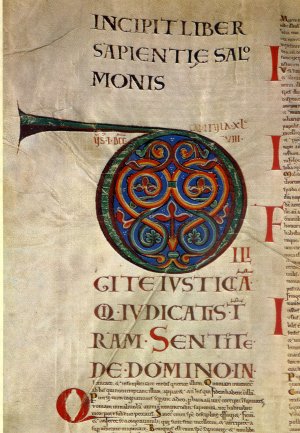David Russell Mosley

Ordinary Time
28 November 2015
The Edge of Elfland
Hudson, New Hampshire
Dear Friends and Family,
Today is the last day of the year. I don’t blame you if you didn’t realize that New Year’s Eve was actually tonight. After all, it’s never the same one year to the next. For those who didn’t know, tomorrow is the first day of Advent, which is the first season of the Christian Calendar. Tomorrow begins a period of fasting and waiting. This year I feel in particular need for a fresh start, for Advent.
Advent swoops in like a mournful owl searching for its evening sustenance after the longest period of Ordinary Time in the Church Calendar. Ordinary Time, the season in which we are still in for today, is a time for us as Christians to remember that the Holy Trinity is active in every season of life, including the mundane, sometimes especially the mundane as the Nativity itself reminds us (for what is ultimately more commonplace than giving birth and being born). I’ve always struggled with this long period of Ordinary Time. My prayer routines tend to fade; I slip much more easily into those pet sins I carry round with me like an evil dragon perched upon my shoulder whispering the unspeakable to me. Now don’t misunderstand me, many good things have happened during this Ordinary Time: I passed my PhD Viva, got two book contracts, have watched my boys continue to grow, and more. But still, as I wrote to you yesterday, the virtues I have attempted to cultivate have shrivelled and been replaced by vices.
I need Advent. I need this period of fasting to help me gain the mastery over my body that God gives to those who cooperate with his grace. What’s more, I need the Nativity and all the other feasts that will greet us at the beginning of this new year. I need to be reminded of the extraordinary ways God has been present in our world so that I can be better prepared to look for him and work with him in the ordinary times. In truth, there are no ordinary times. Josef Pieper, a twentieth century Catholic theologian and philosopher, writes that, “in fact the liturgy only knows feast-days, even working days being feria.”1 For Pieper, the Eucharist, which is the heart of all Christian celebrations, so transfigures time that in one sense it turns every day into a feast day, even the days on which we work or fast. I’ve lost sight of this over this most recent Ordinary Time. So this year, I need Advent more than ever. I need the extraordinary to remind me that in one sense there is no ordinary. The whole cosmos is graced, gifted its being by the Almighty. The fact that there is a day at all is extraordinary. The fact that there is a you, a me, that there are rocks and trees and animals is just as extraordinary as the fact that there are angels, for we all, from the highest order of angels to the lowest order of matter come from the same source, the One who is Three, the One who is Truth, Beauty, Goodness, Unity, and Being.
Pray for me, as I will pray for you, that together we may be reminded through these times of intentional fasting and feasting that begins with Advent, that the world is extraordinary precisely because it was an act of pure gratuity on the part of God. Pray that we may have our vision transfigured so was can see the world around us anew, so that we can see past the mist and shadows and catch glimpses of Reality. This is why this year I need Advent.
Sincerely,
David
1 Josef Pieper, Leisure The Basis of Culture, trans. by Alexander Dru (London: Faber and Faber, 1952), 80

